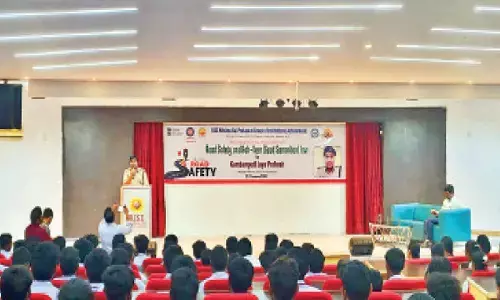Common mistakes MBA aspirants make

The common belief is that “doing an MBA” is necessary for a good career to be so strong in India that people blindly pursue it without analysing whether the belief is true or not
The common belief is that "doing an MBA" is necessary for a good career to be so strong in India that people blindly pursue it without analysing whether the belief is true or not. In reality, only few aspirants with an MBA get into managerial positions, and most of the rest get jobs that would have been filled efficiently by graduates, in another time or place. This has also led to an oversupply of under qualified MBAs who enter the workforce without any experience, and similar in performance to an undergraduate. For better prospects of aspirants, choosing good college is imperative.
Masters in Business Administration (MBA) is the most coveted degree of the 21st century in India amongst graduates today. Graduate-level business students or Engineering students in India prefer MBA above any other post graduate course, as per a global survey by the Graduate Management Admission Council (GMAC). India is home to mushrooming number of institutes offering management education. Of these, only a handful of schools offers excellent quality education, churn out leaders, and are worth joining. Thus, it becomes imperative for students to be careful while joining the right B-school to improve their future career prospects. It is cheaper to do a Global MBA from India than to go abroad.
However, it is common that even the smart students make big mistakes, while selecting the right college that in turn ruin their carrier and repent over the next 2 years. These are some of the common mistakes that students must avoid to have a better experience ahead of them.
Following the crowd
• Generally, students and their parents make a colossal mistake of 'following the crowd.
• Most of students joining colleges due to a lot of influences from their friends, peers and families.
• Due to such strong influences, students take up a course which is not interested in and ends up in a crisis like situation.
• Students better act upon their needs and aspirations and accordingly take a sound and pragmatic decision to join the good college.
Lack of focus in terms of specialisation
• Very few colleges in India actually offer 'specialization courses.
• In the first year, MBA curriculum focuses on general management, it is very important for students to have clarity of specialization that would suit them the best.
• Students under clout of parental pressure and peer pressure join specialization which they are not good at and ruin the initial part of their careers.
• Evaluate the colleges that offer great learning and placement opportunities in the respective fields and then select your B-school.
• Focus on understanding your strengths and select the right college and education programme.
• Too much emphasis on campus and facilities
• Majority of the students place too much emphasis on infrastructure, campus and facilities, but ignore standards of colleges in terms of quality of education.
• Students are charged exorbitant fees not only for the courses but also for several other amenities like a gymnasium, outdoor activities and other co-curricular activities.
• Luxury amenities are great but it should not be the only reason for selecting a college.
• Focus on particular colleges' that have corporate tie-ups, faculty experience, and study material etc.
Getting swayed by 'average salary' placements
• While choosing an MBA institute see the prospects of 'placements.
• Evaluate College track record in Placements and select that college, since job is the most important for career.
• Don't get attracted over 'Average Salary', printed in broachers or advertisement material, which is an average of the lowest and highest salary that was offered to students in the previous year.
• Ascertain the details what is the lowest package and the highest package as well to take a proper decision. This will help one understand the risk and rewards.
'Higher the fees, better the college' syndrome
• The misconception is that colleges with higher fees always provide the best courses and jobs alike.
• Due to such misconceptions students often falls prey to loans, which puts additional burden on both parents and students.
• Analyze Return On Investment (ROI) that includes the college fees paid as compared to the minimum placement package one can achieve during their MBA course.
• This will help parents and students recover their education investment in a very short span of time.
'Experienced faculty' syndrome
• Assess the college faculty educational qualifications and experience which is one of the most key elements college offers.
• Excellent B-school has a great mix of teachers with academic exuberant teachers with great experience and corporates with strong industry knowledge and practical teaching skills.
• Students should place a lot of emphasis on a faculty team with a good mix of experienced teachers as well as industry practitioners.
• B-School which has only teachers but no industry knowledge, students should avoid such colleges; otherwise they struggle in the concepts in practical Domain.
Internship and industry visits
• Every B-school offers exposure foreign trips and industrial visits as a part of the curriculum.
• Assess that industry visits outcomes what really is one gaining out of these visits.
• Student does not become more superior to the other just because of a foreign industrial visit.
• Visiting aborad MNC company will make no sense if you have been placed in a local company in a 'Sales profile.
Therefore, it is significant to have a self assessment always before choosing a college and thinking about the pros and cons in doing an MBA. To conclude, a thorough research is always essential before joining the right B-school. Think wisely and practically as this could be a great stepping stone for a very successful career in your bright future.

















